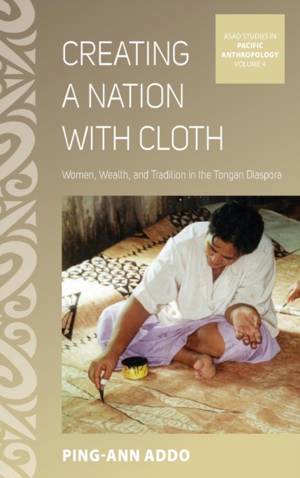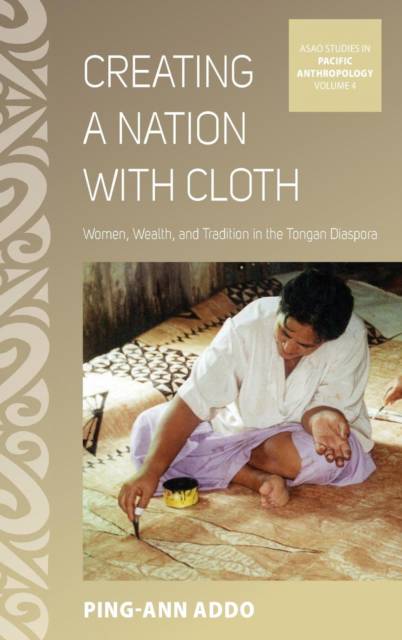
- Afhalen na 1 uur in een winkel met voorraad
- Gratis thuislevering in België vanaf € 30
- Ruim aanbod met 7 miljoen producten
- Afhalen na 1 uur in een winkel met voorraad
- Gratis thuislevering in België vanaf € 30
- Ruim aanbod met 7 miljoen producten
Omschrijving
Tongan women living outside of their island homeland create and use hand-made, sometimes hybridized, textiles to maintain and rework their cultural traditions in diaspora. Central to these traditions is an ancient concept of homeland or nation- fonua-which Tongans retain as an anchor for modern nation-building. Utilizing the concept of the "multi-territorial nation," the author questions the notion that living in diaspora is mutually exclusive with authentic cultural production and identity. The globalized nation the women build through gifting their barkcloth and fine mats, challenges the normative idea that nations are always geographically bounded or spatially contiguous. The work suggests that, contrary to prevalent understandings of globalization, global resource flows do not always primarily involve commodities. Focusing on first-generation Tongans in New Zealand and the relationships they forge across generations and throughout the diaspora, the book examines how these communities centralize the diaspora by innovating and adapting traditional cultural forms in unprecedented ways.
Specificaties
Betrokkenen
- Auteur(s):
- Uitgeverij:
Inhoud
- Aantal bladzijden:
- 252
- Taal:
- Engels
- Reeks:
- Reeksnummer:
- nr. 4
Eigenschappen
- Productcode (EAN):
- 9780857458957
- Verschijningsdatum:
- 1/06/2013
- Uitvoering:
- Hardcover
- Formaat:
- Genaaid
- Afmetingen:
- 152 mm x 229 mm
- Gewicht:
- 489 g

Alleen bij Standaard Boekhandel
Beoordelingen
We publiceren alleen reviews die voldoen aan de voorwaarden voor reviews. Bekijk onze voorwaarden voor reviews.











